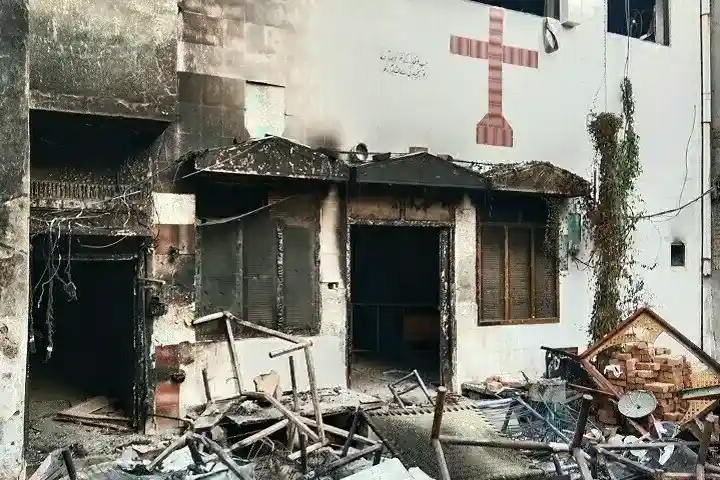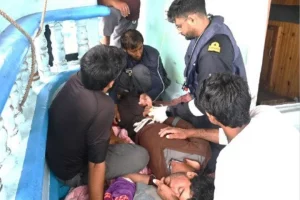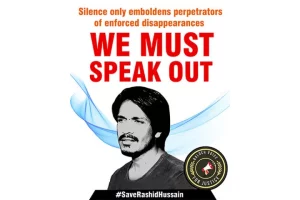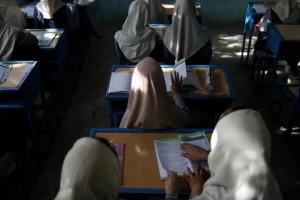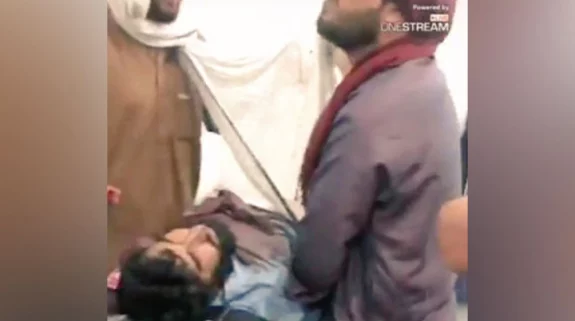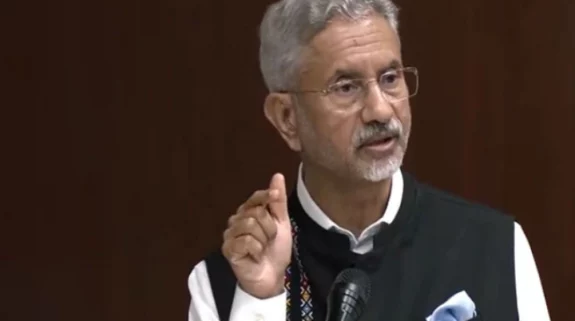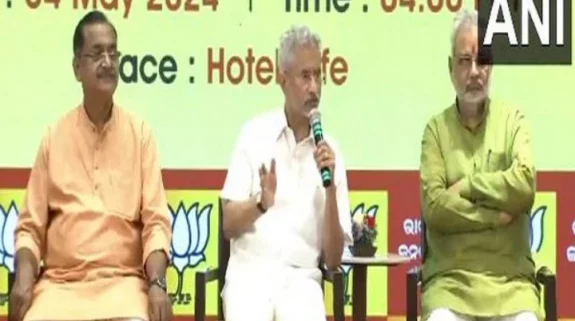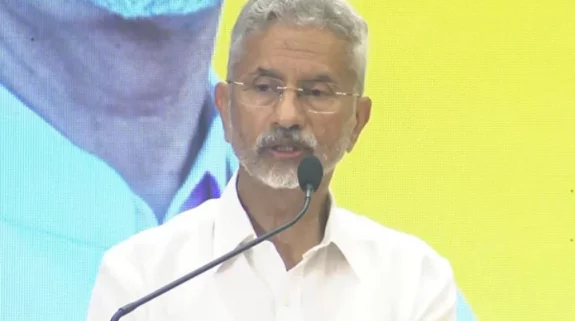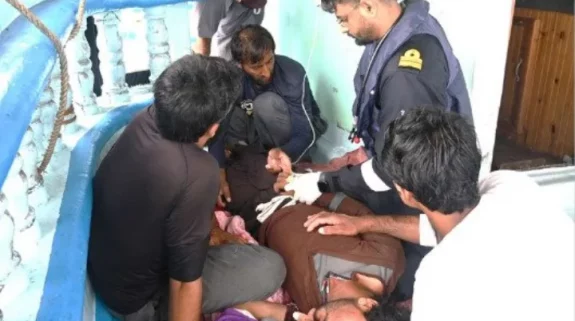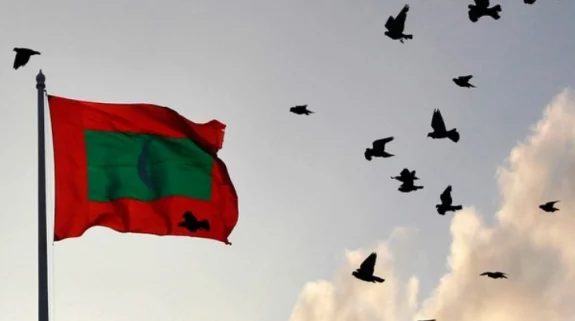Renowned author Salman Rushdie’s novel Shame is thematic metaphor for a state like Pakistan whose creation and regressive descent into chaos, according to the author, is a shame. Daily happenings in Pakistan prove Rushdie and million other naysayers right. Wednesday’s ransacking and torching of Christian homes and churches in Jaranwala in Faisalabad district, Punjab, wrote another chapter of shame.
they are attacking all the #Christian properties in the area. #Jaranwala #Pakistan pic.twitter.com/CvLEoWVTCp
— Faraz Pervaiz (@FarazPervaiz3) August 16, 2023
Clerics belonging to religious outfits belonging to Jamaat Ahl-e-Sunnat and another with the Tehreek-i-Labbaik Pakistan (TLP) have been identified by the police as people who led the rioting mob.
Interestingly, these arson attacks in the Christian settlement took place over the alleged blasphemy or desecration of the Quran and the connected law – Blasphemy Act – has been just strengthened by the outgoing Parliament. It was feared that it would weaponise mobs to resort to vandalism in the name of religion, and it happened immediately after in Jaranwala.
The failed state #Islamicrepublicofpakistan conspired against #Christianity and with collaboration of notorious radical Islamic group #tehreekelabbaik arsoned 17 #Churches in #Faisalabad Hate Full Speech pic.twitter.com/KY6XC85YZr
— Faraz Pervaiz (@FarazPervaiz3) August 16, 2023
The new law seeks the minimum punishment for those who insult the revered personalities of Islam from three to 10 years along with a fine of Rs 1 million. It also makes the charge of blasphemy an offence for which bail is not possible.
As per police and local sources, the violence erupted after some locals alleged that several desecrated pages of the Holy Quran had been found near a house at Cinema Chowk in Jaranwala, where two Christian brothers resided.
As the news spread, a mob gathered and went on rampage, vandalising a Christian cemetery and the office of the local assistant commissioner. Later, they attacked Christian homes and set around 5 churches on fire.
🚨 Unrest grips #Jaranwala as blasphemy allegations spark turmoil for the #Christian community. A mob attacked a Christian locality, resulting in the destruction of a church and several homes.#Faisalabad #Blasphemy #Pakistan pic.twitter.com/JiQWkaTsDw
— Voicepk.net (@voicepkdotnet) August 16, 2023
Riots continued for more than 10 hours without any intervention by police who were at the scene, residents and community leaders said. Residents said thousands of people led by local clerics were carrying iron rods, sticks, knives, and daggers during the rioting.
Eyewitnesses also say that at least 50 Christian houses have been completely gutted.
The incident was so severe that the Punjab government had to call in Rangers while 3,000 police personnel from various police units, including the Elite Force, were deployed as well.
The caretaker set-up, fearing international backlash has booked around 600 people over two separate terror charges. Police had arrested over 100 suspected rioters, the government statement said, adding that an inquiry has been ordered into the incident.
Caretaker Prime Minister Anwar ul Haq Kakar called for stern action against those responsible for Wednesday’s violence. “I am gutted by the visuals coming out,” he said.
The police have also registered sacrilege cases against 13 locals and frightened Christians have left their homes to take shelter in a neighbouring district.
According to local reports, the alleged sacrilege was either shararat (mischief) of some miscreants or rumours of it spread because there is already an atmosphere to fan such rumours after news of the desecration of Quran in Sweden has come to the public knowledge.
Rights group Amnesty International called on Pakistani authorities to ensure the protection of minorities.
“The vicious mob attacks are just the latest manifestation of the threat of vigilante violence which anyone can face in Pakistan after a blasphemy accusation,” it said in a statement.
The United States was “deeply concerned that churches and homes were targeted,” State Department Deputy Spokesperson Vedant Patel said on Wednesday.
#US State Department Principal Deputy spokesperson Vedant Patel expressed concern over the targeted attacks on churches in response to the reported desecration of the #Quran in #Pakistan and said, “… we are always concerned of incidents of religiously motivated violence”. pic.twitter.com/aN1eAuLgv0
— Khushboo Parimoo (@KhushbooParimoo) August 17, 2023
He said that while the United States backed free expression, “violence or the threat of violence is never an acceptable form of expression.”
“We urge Pakistani authorities to conduct a full investigation into these allegations and call for calm,” he said.
How It Happens in Pakistan
Since 2008 onwards when the democratically elected governments have been in power, no sincere efforts have been made to enact laws for the protection of minorities and amend the draconian blasphemy law. On the contrary, the blasphemy law is even more draconian.
In the shadow of such laws and a desire to jump to quick community leadership, the outfit like Tehreek-e-Labbaik Pakistan (TLP) has produced a crop of clerics who are ready to defy the writ of the state with a plank to claim guardianship of Islam. Such clerics are scattered all over Pakistan, especially in Punjab and Karachi. Wednesday’s mob attacks were also handiwork of such outfits. Both the military and civil administration have shied to act against such elements as it might look like hurting religious sentiments of the public at large.
Human rights activists have been regularly raising their voices on such issues, sometimes even on personal risk. “The frequency and scale of such attacks — which are systematic, violent and often uncontainable — appear to have increased in the last several years,” said the Human Rights Commission of Pakistan in a statement.
According to research reports, Muslims have been at the forefront of being accused of blasphemy. Muslims made up a large chunk of people accused of committing blasphemy in the year 2021, according to a report released in March 2022.
A report titled ‘Human Rights Observer 2022’ prepared by the Centre for Social Justice (CSJ) has revealed that every second accused of blasphemy happened to be a Muslim, adding that as many as 84 persons had been booked under blasphemy charges throughout Pakistan in 2021.
According to the report, 42 people accused of blasphemy were Muslims followed by 25 Ahmadis, seven Hindus and three Christians.






